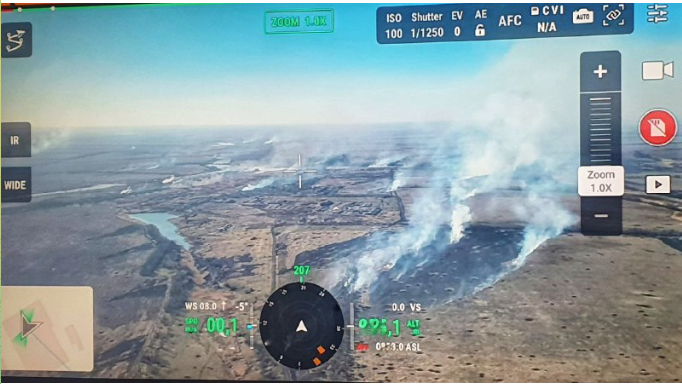

by John Helmer, Moscow
@bears_with
In just thirteen minutes, four Kalashnikov rifles, knives, and plastic bottles of gasoline, discharged by four men, were not enough to kill and injure so many people as have been accounted for to date in the Crocus City Hall attack in Moscow.
More than half those examined so far in post-mortems “died as a result of the fire from exposure to high temperature and combustion products”, according to Alexander Bastrykin, the chief investigator in his public report to President Vladimir Putin on Monday night. Post-mortems have yet to be reported for one-third of the 139 dead counted by Bastrykin; no analysis of the cause of injuries to 182 of the surviving casualties has been reported yet; 93 of them remain in hospital.
Bastrykin also reported “two AK-74 assault rifles, over 500 rounds of ammunition, 28 magazines with ammunition, and bottles with remaining gasoline were found and seized at the scene.” A NATO military expert explains: “They didn’t strike me as well-trained, so they lost time changing magazines and their fire wasn’t all that accurate. These data tell me the majority of victims died from some other cause than gunshot.”
Yevgeny Krutikov, a writer with military intelligence sources, reported in Vzglyad: “It can be assumed that the weapons were stored in the terrorists’ cache for a long time and not too carefully – the machine guns sparkled during the shooting. This indicates damage to the barrel or breech (dirt got inside the barrel).”
Recruitment of the shooters; pre-placement of weapons and ammunition; accommodation and advance payment to the gunmen; purchase of the car they used; communications and coordination; exit undetected in the crowds escaping the building; and the escape route to the Ukraine border through Bryansk region – the evidence of these details prepared over weeks and months indicate a much larger organization than the four shooters formed with seven others already arrested and under interrogation.
What they know and will tell is likely to reveal a sophisticated command-and-control system which knew how vulnerable the target was, how to maximize the killing in the shortest possible duration, and at the same time allow escape for the attackers – which is almost unprecedented in the recent history of mass terrorist attacks in Russia. .
That’s to say, the command knew — the shooters and their accomplices didn’t. There was advance reconnoiter of the Crocus City Hall so that the shooters knew the route they followed inside the building and then out under cover of fire and smoke, which erupted faster than they were able to shoot almost half of their ammunition which they left behind.
Did the command also know that Crocus City Hall and the surrounding mall were operating without adequate fire alarms, smoke and carbon monoxide detectors, sprinklers, and emergency ventilation, none of which has been reported by eyewitnesses? Was the building targeted because the command knew it was constructed without fire-resistant structural supports, allowing ceilings and roof to cave in, choking or crushing those beneath to death?
“Most of the victims in Crocus died not at the hands of terrorists, but from the criminal negligence of the owners and regulatory authorities,” reported Mikhail Delyagin, chairman of the State Duma Committee on Economic Policy, on Sunday evening. “It is known that many people suffocated with carbon monoxide inside the building. There are already more victims of this kind than those killed by terrorist shooting. Nothing like this could happen in a certified building built according to modern standards for such objects. Why? Because all such buildings are equipped with an automatic ventilation system. These are windows or hatches that fire off automatically if the detector detects an increased level of carbon monoxide inside. Holes open in the roof – and the life-threatening gas goes into the sky. This system works, by the way, without electricity, on compressed air.”
“The way the Crocus burned down shows that cheap Chinese materials (glass wool, plastics, cable braid, etc.) were used in its decoration, which are prohibited for use in public buildings. The reason for the ban? Combustibility. In Europe, non-burning glass wool, plastics, etc. have been used for a long time. They are, of course, twice or three times more expensive than the Chinese equivalent. But they have one advantage: they do not burn in case of fire. And they don’t kill those who are inside.”
Delyagin has publicly accused Aras Agalarov, the wealthy founder of the Crocus shopping and development group, and his son Emin of failing “to formally commission this particular concert hall. As it became known, it is not listed as a properly designed capital construction object on the cadastral map of the Federal Register. Apparently, the amount of bribes needed to receive such a dangerous object exceeded all reasonable limits, and for Agalarov, taking into account the above-mentioned monstrous violations of standards, it was cheaper to extend the status of a building under construction than to put it into operation.”
Bastrykin has announced “the investigation is checking the possibility of violation of safety requirements and the fire extinguishing system in the Crocus City Hall concert hall. For this purpose, remote controls, electronic components and control devices for the fire protection system of the concert hall were seized. They are aimed at researching and extracting information about the operating mode of fire safety systems at the time of the terrorist attack. The contents of the fire protection system server are being studied with the participation of experts. To establish the operability and timely operation of all fire safety systems, a fire technical examination has been appointed.”
Emin Agalarov has issued a press statement claiming he arrived shortly after the gunmen had left. He said he “entered the building 40 minutes after the first shots were fired. He noted that the fire safety system was working and the doors were unlocked…The sprinkler fire extinguishing system was also operating normally. The building collapsed only six hours after the start of the terrible fire. Some rooms remained intact and did not burn down.”
(more…)




















